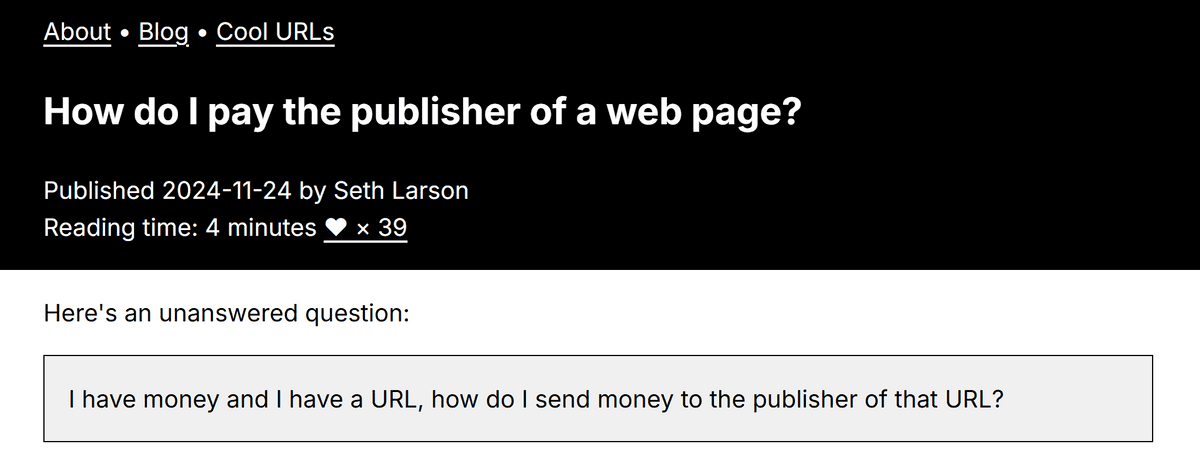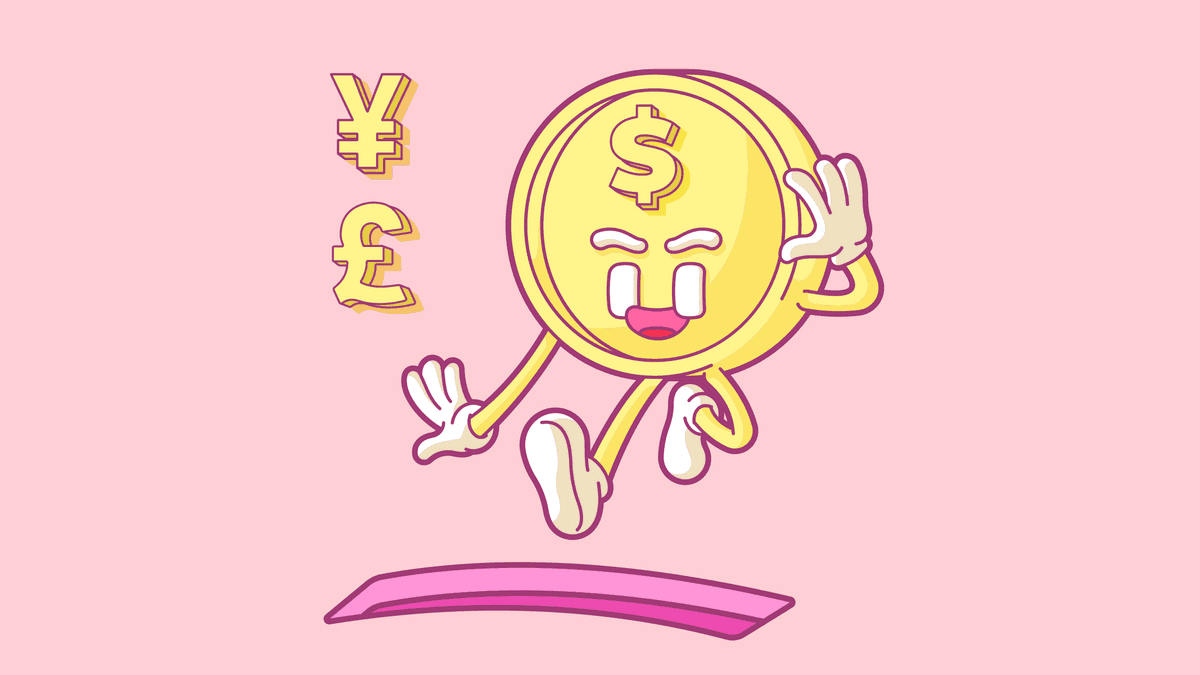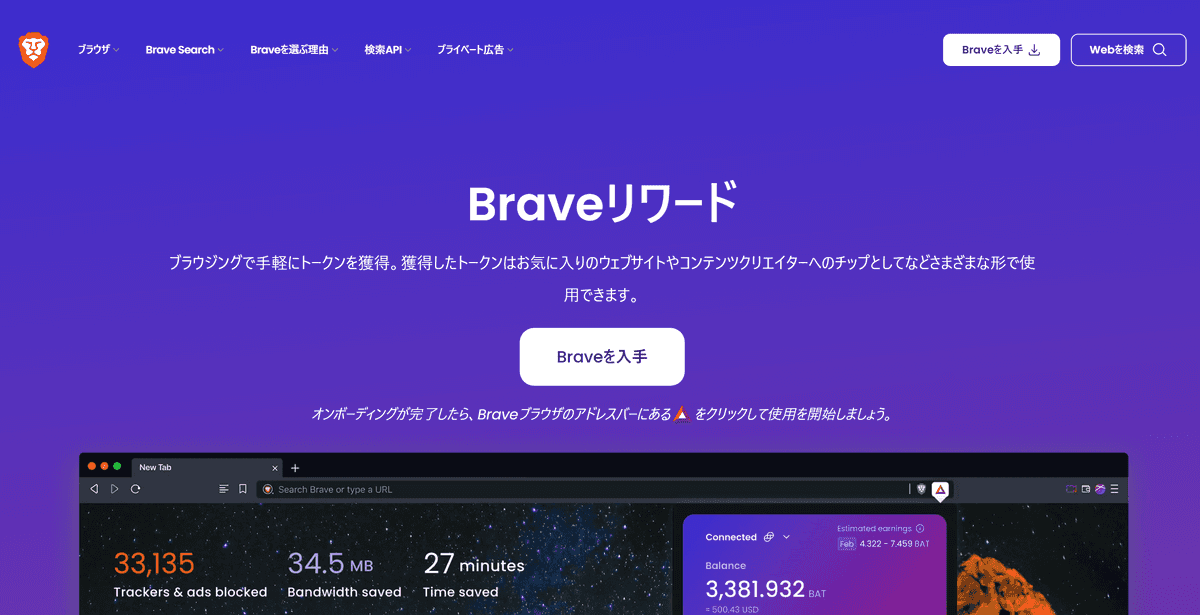Is there a proper way to give small tips to websites?

Seth Michael Larson, an engineer at
the Python Software Foundation
, recently wrote a blog post detailing the current state of things when it comes to sending payments to websites.How do I pay the publisher of a web page?
https://sethmlarson.dev/how-to-i-pay-for-a-web-page

A URL is like an address for your content on the web. But if you want to send money to the owner of that URL, you don't have many options. There are many ways to earn money (Patreon, Kofi, GitHub Sponsors, YouTube Channel Memberships, etc.), but there is no 'standard' way to pay for the content on a page.
Larson summarized the current methods of sending money, saying, 'We want to make it easy to tip and support the creators of content you like with just the click of a button.'
・
Payment request API
There is a payment request API in JavaScript. However, it requires website administrators to add JavaScript code to their pages, which is more difficult than other payment services, and requires payments to be processed individually, so 'I don't think many people will implement the payment request API,' and 'Although the API exists, I have never seen it used by creators,' Larson said.
- Links to payment methods on the page
Website administrators may embed links to the payment services they use on their pages. It is possible to scrape the payment links, but scraping runs the risk of collecting 'other people's links posted in comments,' which raises questions about reliability. In this case, reliability can be ensured if the site creator sets the link in the meta tag in the head.

・Podcasting 2.0's '
podcast:funding
' tagPodcasting 2.0, which extends RSS for podcasts, has a tag called 'podcast:funding.' By using podcast:funding, you can set a URL for support along with a message asking for support, such as 'Please support us!' or 'Become a member.'
・Flattr
Flattr is a service where users 'subscribe' to a certain amount of money and distribute it to sites based on the user's browsing history. It started in 2010, but the service will be shut down in 2023.
Larson said of Flattr, 'Access to your entire browsing history is a privacy nightmare,' and that 'in order to make micropayments possible, we had no choice but to take the difficult path of creating our own payment platform for creators.' Micropayments inevitably have a high proportion of payment fees, and there is a structural contradiction in that if you can earn enough to offset the payment fees, you don't need to rely on micropayments.
For these reasons, Larson concluded that he had no desire to replicate Flattr's approach.
・Brave
Brave has a system called ' Brave Rewards ' that shares revenue from ads placed by Brave with websites. However, since Brave Rewards uses the virtual currency 'BAT', Larson said, 'There are many payment methods other than virtual currency, so I don't think creators and users need to adopt new technology.'

Given the current situation, Larson says, 'There may be a way to develop something as a web standard.'
GIGAZINE also welcomes tips in BAT. If you are a Brave user, please support us by sending a tip!
Related Posts:
in Note, Web Service, Web Application, Posted by log1d_ts






